Product Description
Why Choose US
1.Professional Bearing Manufacturer with 10 years export experience.
2.Large Stock.
3.Prompt Lead time.
4.SMALL order accepted.
5.A Wide Range of Qualified Bearing with Competitive price.
6.FREE Samples.
7.Brand Packagings accepted.
8.OEM service(Manufacturing according to your drawings and special request).
Brief Introduction
SHZ BEARING MANUFACTURING Co., Ltd is a professional bearing factory and trading company in HangZhou, ZheJiang .
The factory mainly produce Tapered roller bearing, Deep groove ball bearing, Wheel hub bearing, Clutch release bearing, Pillow block bearing, etc. After 10 years in the global market, SHZ Bearings get a high reputation among following Countries and regions: Russia, Algeria, Egypt, Italy, Korea, Mexico, Brazil, South Africa, Turkey, Iran, Pakistan, Singapore, Philipphines, USA and so on.
SHZ has accumulated more than 10 years in bearing innovation and production. SHZ persist with “Quality first, Innovation win, Service first” as perpose. “The pursuit of perfect quality, create first-class brand” as management policy, promoting the brand strategy,continuously improving product quality and brand connotation.
SHZ has the most advanced production equipments and strictest quality control system, it makes our products meet domestic and international standard.
Welcome all of customers visit our factory and cooperate for mutual benefit.
Product Description
|
Name |
6206 Deep Groove Ball Bearing |
||||||||
|
Model Number |
6206 |
||||||||
|
Brand |
CZPT Or Customized Logo |
||||||||
|
Material |
Chrome Steel (GCR15/SAE512-3480 |
||||||||
|
6014 |
6214 |
6314 |
6414 |
6803 |
62214 |
62314 |
9491-3820 |
||
|
6017 |
6217 |
6317 |
6417 |
6806 |
160703 |
3201 |
9491 |
3202 |
B17-116 |
|
6019 |
6219 |
6319 |
6419 |
6808 |
1160304 |
3203 |
DG3062 |
||
|
6571 |
6220 |
6320 |
6420 |
6809 |
1160305 |
3204 |
DG358571 |
||
|
6571 |
6221 |
6321 |
606-2RS |
6810 |
1180304 |
3205 |
DG357226 |
||
|
6571 |
6222 |
6322 |
607-2RS |
3211 |
1180305 |
3206 |
DG357222 |
||
|
6571 |
6224 |
6324 |
608-2RS |
3212 |
20703 |
3207 |
DG4 0571 1/27 |
||
|
6026 |
6226 |
6326 |
609-2RS |
3213 |
20803 |
3208 |
B8-85 |
||
|
6571 |
6228 |
6328 |
626-2RS |
3214 |
98305 |
3209 |
B17-99 |
||
|
6030 |
6230 |
6330 |
627-2RS |
3215 |
B22-19 |
3210 |
B15-86 |
||
Packing
General Packing Methods:
A: Tube Package + Outer Carton + Pallet
B: Single Box + Outer Carton + Pallet
C: Tube Package + Middle Box + Outer Carton + Pallet
D: Single package+ Middle Box+ Outer Carton+ Pallet
E: According to your request
Production & Quality Control
Our Service & Exhibition Show
Payment & Deivery
| Delivery Time | Payment Terms | Shipping Method | |
| Samle Order | 1-3days | 100% in Advance | By Air |
| LCL Order | 3-25days | 30% Deposit and the Balance Paid Before Shipment Or Against B/L Copy |
By Air Or By Sea |
| FCL Order | 25-45days | By Air Or By Sea |
FAQ
1. How many the MOQ of your company?
Our company MOQ is 1pc.
2. Could you accept OEM and customize?
YES, We can customize for you according to your sample or drawings.
3. Could you supply samples for free?
YES, We can supply samples for free, while you have o pay for the freight cost.
4. What is your terms of delivery?
We can accept EXW, FOB, CFR, CIF, etc. You can choose the 1 which is the most convenient cost effective for you.
5. Is it your company factory or Trade company?
We are factory, our type is Factory+Trade.
6. What is the warranty for your bearing?
2years, Customer need supply photos and send bearings back.
7. Could you tell me the packing of your goods?
Single Plastic Bag+Inner Box+Carton+Pallet, or according to your request.
8. Could you supply door to door service?
YES, by air or by express (DHL, FEDEX, TNT, EMS, SF7-10 days to your city)
9. Could you tell me the payment term of your company can accept?
T/T, Western Union, Paypal, L/C, etc.
10. What about the lead time for mass production?
Honestly, it depends on the order quantity and the season you place the order, our production capacity is 8*20ft containerseach month. Generally speaking, we suggest you start inquiry 3 to 4 months before the date you would like to get the products at your Country.
/* January 22, 2571 19:08:37 */!function(){function s(e,r){var a,o={};try{e&&e.split(“,”).forEach(function(e,t){e&&(a=e.match(/(.*?):(.*)$/))&&1
| Contact Angle: | 0 |
|---|---|
| Aligning: | Non-Aligning Bearing |
| Separated: | Unseparated |
| Rows Number: | Single |
| Load Direction: | Radial Bearing |
| Material: | Bearing Steel |
| Samples: |
US$ 0.1/Piece
1 Piece(Min.Order) | |
|---|
| Customization: |
Available
| Customized Request |
|---|
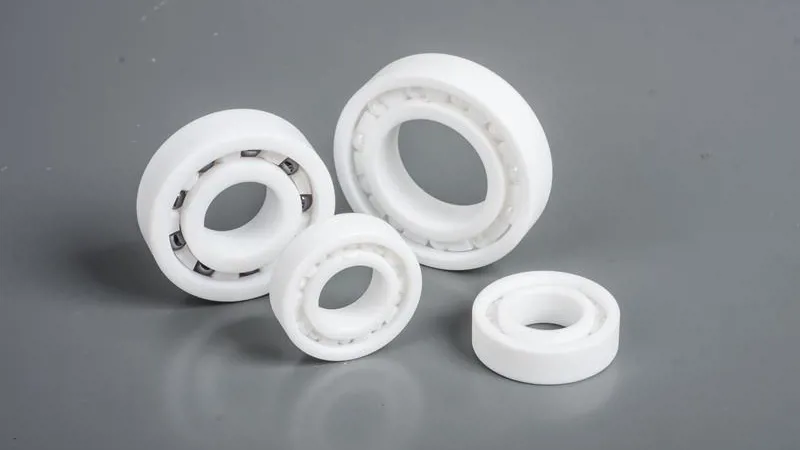
Can you describe the various types of seals and shields used with plastic bearings for contamination prevention?
Yes, I can describe the various types of seals and shields used with plastic bearings for contamination prevention. Here’s a detailed explanation:
- 1. Contact Seals:
Contact seals, also known as lip seals or rubber seals, are common types of seals used with plastic bearings. These seals are made of elastomers such as nitrile rubber (NBR) or fluorocarbon rubber (FKM) and provide a physical barrier between the bearing and the external environment. Contact seals have a lip that makes direct contact with the inner or outer ring of the bearing, effectively preventing the entry of contaminants such as dust, dirt, or moisture. They offer good sealing performance and are suitable for applications with moderate operating speeds and temperatures.
- 2. Non-Contact Seals:
Non-contact seals, also known as labyrinth seals or gap seals, are designed to minimize friction and allow for higher operating speeds. These seals consist of multiple labyrinth-like grooves or channels that create a tortuous path for contaminants, preventing their entry into the bearing. Non-contact seals are typically made of materials like plastic or metal. They offer reduced heat generation, lower torque, and increased efficiency compared to contact seals. However, they may not provide as high a level of contamination protection in extremely dusty or wet environments.
- 3. Shields:
Shields, also referred to as metal shields or metal covers, are used with plastic bearings to provide a barrier against contaminants. Shields are generally made of metal, such as stainless steel or sheet steel, and are attached to the outer ring of the bearing. They have a gap or clearance between the shield and the inner ring, allowing for smooth rotation while preventing larger particles or debris from entering the bearing. Shields offer good protection against coarse contaminants and are suitable for applications with moderate speeds and temperatures.
- 4. Combination Seals and Shields:
In certain applications, a combination of seals and shields may be used to provide enhanced contamination prevention. These combination seals and shields offer a dual-layered protection system. For example, a plastic bearing may have a contact seal on one side to provide effective sealing against contaminants, while a shield is used on the other side to provide additional protection and allow for visual inspection or lubrication access. This combination approach offers flexibility and adaptability to different operating conditions and contamination risks.
- 5. Customized Sealing Solutions:
In addition to standard seals and shields, customized sealing solutions can be developed based on specific application requirements. Custom seals or shields can be designed to address unique challenges such as extreme temperatures, aggressive chemicals, or high-pressure environments. These specialized sealing solutions ensure optimal contamination prevention and performance in demanding applications.
In summary, plastic bearings can be equipped with various types of seals and shields for contamination prevention. Contact seals, non-contact seals, shields, and combination seals and shields are commonly used to provide a barrier against contaminants such as dust, dirt, or moisture. The selection of the appropriate sealing solution depends on factors such as operating conditions, contamination risks, speed requirements, and specific application needs. By effectively preventing contamination, these seals and shields contribute to the reliable and long-lasting performance of plastic bearings in diverse industrial and mechanical applications.
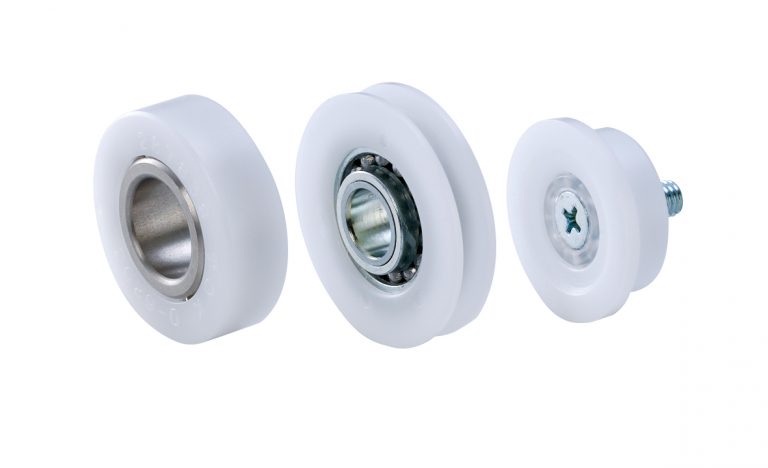
Can plastic bearings be customized or machined for unique industrial needs?
Yes, plastic bearings can be customized or machined to meet unique industrial needs. Here’s a detailed explanation:
- 1. Customized Design:
Plastic bearings can be customized in terms of their design, dimensions, and features to suit specific industrial requirements. Bearing manufacturers often offer customization options to tailor the bearings to the unique needs of different industries. This may involve modifying the bearing’s shape, adding specific features, adjusting tolerances, or incorporating special materials to enhance performance in specific applications.
- 2. Material Selection:
Plastic bearings can be machined from various types of plastic materials, each with its own set of properties and characteristics. The choice of material can be customized based on the specific industrial needs. For example, some plastic materials offer enhanced chemical resistance, while others excel in high-temperature environments. By selecting the appropriate material, the bearings can be customized to withstand the unique operating conditions of the industry.
- 3. Machining and Fabrication:
Plastic bearings can be machined or fabricated to achieve desired shapes, sizes, or configurations. Machining processes such as turning, milling, drilling, or grinding can be employed to modify the bearings according to specific requirements. This allows for precise customization of the bearing’s dimensions, bores, or mounting features to ensure a proper fit and compatibility with the industrial equipment or machinery.
- 4. Special Additives or Reinforcements:
In some cases, plastic bearings can be customized by incorporating special additives or reinforcements. For example, solid lubricants such as PTFE (polytetrafluoroethylene) or graphite can be added to provide self-lubrication properties. Fiber or glass reinforcements can be included to enhance the bearing’s strength, stiffness, or load-carrying capacity. These customized modifications can be tailored to specific industrial needs, allowing the bearings to perform optimally in unique operating conditions.
- 5. Application-Specific Testing and Validation:
When customizing plastic bearings for unique industrial needs, it is essential to perform application-specific testing and validation. This ensures that the customized bearings meet the performance requirements and can withstand the anticipated operating conditions. Testing may include evaluating factors such as load capacity, friction, wear resistance, temperature stability, or chemical compatibility to validate the suitability of the customized bearings for the intended application.
In summary, plastic bearings can be customized or machined to accommodate unique industrial needs. Customization options include design modifications, material selection, machining and fabrication, incorporation of special additives or reinforcements, and application-specific testing and validation. By customizing plastic bearings, industries can obtain bearings that are specifically tailored to their unique requirements, enabling optimal performance and reliability in their specific applications.
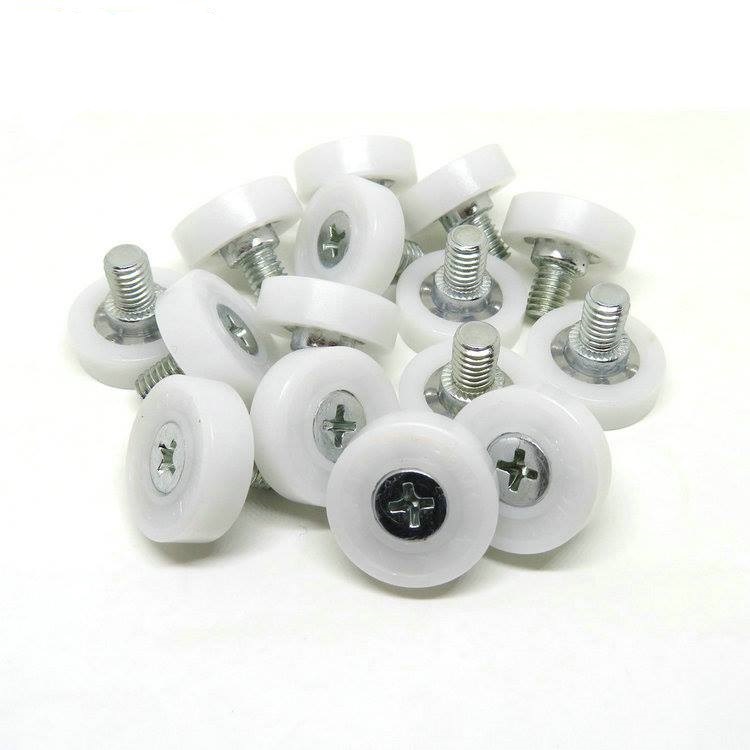
How do plastic bearings contribute to reduced friction and noise in machinery?
Plastic bearings play a significant role in reducing friction and noise in machinery. Here’s a detailed explanation of how plastic bearings contribute to these benefits:
- 1. Low Friction Coefficient:
Plastic bearings are designed to have low friction coefficients, which means they generate less resistance as the bearing surfaces slide or roll against each other. The low friction coefficient of plastic materials, such as PTFE (polytetrafluoroethylene) or nylon, helps minimize the amount of energy required to rotate or move the bearing. This reduction in friction results in several advantages, including lower power consumption, improved efficiency, and reduced wear on the bearing surfaces.
- 2. Self-Lubricating Properties:
Many plastic bearings have self-lubricating properties, which means they can operate effectively without the need for external lubrication. The plastic materials used in these bearings contain additives or solid lubricants that provide a thin film of lubrication between the bearing surfaces. This self-lubrication minimizes friction and wear, enhances the bearing’s performance, and reduces the need for regular lubrication maintenance. As a result, plastic bearings contribute to smoother operation and lower friction-related noise in machinery.
- 3. Damping Characteristics:
Plastic materials used in bearings often possess inherent damping characteristics. Damping refers to the ability of a material to absorb or dissipate vibrations and energy. Plastic bearings can effectively absorb vibrations generated during machinery operation, which helps reduce the transmission of vibrations to other parts of the system. This damping effect contributes to a quieter operation by minimizing the noise generated by machinery vibrations.
- 4. Reduced Metal-to-Metal Contact:
Plastic bearings create a barrier between metal surfaces, reducing direct metal-to-metal contact. This separation prevents or minimizes the occurrence of metal-to-metal friction, which can lead to increased noise levels. The plastic material acts as a cushioning layer, reducing the impact and noise generated by metal components rubbing against each other. By reducing metal-to-metal contact, plastic bearings contribute to quieter machinery operation.
- 5. Vibration Isolation:
Plastic bearings can help isolate and dampen vibrations within machinery. The elastic and damping properties of plastic materials allow them to absorb and dissipate vibrations, preventing them from propagating throughout the system. By isolating vibrations, plastic bearings help reduce the transmission of vibrations to other parts of the machinery, minimizing noise generation. This vibration isolation contributes to a quieter overall operation.
Overall, plastic bearings offer several advantages that contribute to reduced friction and noise in machinery. Their low friction coefficients, self-lubricating properties, damping characteristics, reduced metal-to-metal contact, and vibration isolation capabilities all work together to minimize energy losses, wear, and noise generation. However, it’s important to consider specific application requirements and consult manufacturers’ guidelines to ensure the appropriate selection and use of plastic bearings for optimal performance in machinery.


editor by CX 2024-05-07
China OEM C0/C2/C3/C4 Open/2ls Made by Plastic Tube+Anti-Rust Paper+Box+Carton Ball Bearings Tapered Roller Bearing for Sale bearing assembly
Product Description
Product Description
Detailed Photos
Product Parameters
Certifications
Packaging & Shipping
Company Profile
ZheJiang CZPT Metal Co., Ltd. is located in HangZhou, ZheJiang Province,which is founded in 2571.
Mainly engaged in the production and sales of auto parts. For the automobile after-sales maintenance market to provide a complete variety of high-quality parts products, the annual sales of 30 million US dollars, the products are exported to the United States, Europe, Russia, Southeast Asia, the Middle East and other dozens of countries and regions, enjoy a high reputation in the domestic and foreign markets.
It can provide professional solutions and is a trusted supplier in the automotive aftermarket. The company has passed the “three system” certification of quality, environment and occupational CZPT and safety. Scientific management system, first-class production testing equipment, exquisite technology to ensure product quality.
FAQ
Q1: How many the MOQ of your company?
A: Our company MOQ is 1pcs.
Q2: Could you accept OEM and customize?
A:YES, we can customize for you according to sample or drawing.
Q3: Could you supply sample for free?
A: Yes, we can supply sample for free, but need our customer afford freight.
Q4 : Does your factory have CE?
A: Yes, we have ISO 9001:2008, and SASO. If you want other CE, we can do for you.
Q5: Is it your company is factory or Trade Company?
A: We have our own factory; our type is factory + trade.
Q6: What time the guarantee of your bearing quality guarantee period?
A: 6 months ,Customer need supply photos and send bearing back.
Q7: Could you tell me the payment term of your company can accept?
A: T/T, Western Union, PayPal, T/T, L/C.
Q8: Could you tell me the delivery time of your goods?
A: 7-15 days , mostly base on your order quantity.
/* March 10, 2571 17:59:20 */!function(){function s(e,r){var a,o={};try{e&&e.split(“,”).forEach(function(e,t){e&&(a=e.match(/(.*?):(.*)$/))&&1
| Outer Dimension: | Small and Medium-Sized |
|---|---|
| Transport Package: | Box, Pallet, Rustproof Paper, Carton, Single |
| Specification: | 30200/32000/33000 Series |
| Trademark: | Huazhong |
| Origin: | China |
| Samples: |
US$ 2.5/Piece
1 Piece(Min.Order) | |
|---|
| Customization: |
Available
| Customized Request |
|---|
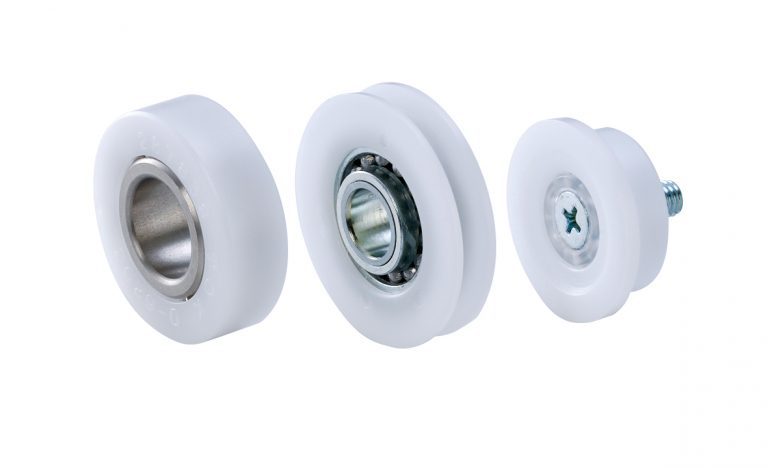
What are the eco-friendly or sustainable aspects of plastic bearing materials?
Plastic bearing materials offer several eco-friendly and sustainable aspects. Here’s a detailed explanation:
- 1. Recyclability:
Many plastic bearing materials are recyclable. At the end of their useful life, these bearings can be collected, processed, and transformed into new plastic products or materials. Recycling plastic bearings helps reduce waste, conserve resources, and minimize the environmental impact associated with their disposal. This promotes a circular economy and reduces the demand for virgin plastic production.
- 2. Use of Recycled Content:
Some plastic bearing materials can be manufactured using recycled content. By incorporating recycled plastics into the production process, the reliance on new plastic raw materials is reduced. This helps conserve resources, reduce energy consumption, and decrease the carbon footprint associated with the manufacturing of plastic bearings.
- 3. Lower Energy Consumption:
Plastic bearings often require less energy consumption compared to metal bearings. This is primarily due to their lower weight, which reduces the energy required for transportation, installation, and operation. Additionally, plastic bearings can operate without the need for external lubrication, eliminating the energy consumption associated with lubrication systems or processes.
- 4. Reduced Maintenance and Lubrication:
Plastic bearings can offer reduced maintenance requirements and eliminate the need for external lubrication. Unlike metal bearings, many plastic bearings are self-lubricating or have low friction properties, allowing them to operate effectively without the need for regular lubrication. This not only reduces maintenance efforts and costs but also minimizes the use of lubricants, which can be environmentally harmful if not properly managed.
- 5. Chemical Resistance and Durability:
Plastic bearing materials often exhibit excellent chemical resistance and durability. This enables them to withstand harsh environments and aggressive substances without degradation or the need for frequent replacements. The longevity and resistance to chemical attack reduce the overall environmental impact associated with the production, use, and disposal of plastic bearings.
- 6. Lighter Weight:
Plastic bearings are generally lighter in weight compared to metal bearings. This lightweight characteristic offers several eco-friendly benefits. Firstly, it reduces the energy required for transportation and installation, resulting in lower fuel consumption and greenhouse gas emissions. Secondly, it can contribute to weight reduction in machinery or equipment, leading to energy savings during operation.
In summary, plastic bearing materials offer several eco-friendly and sustainable aspects, including recyclability, use of recycled content, lower energy consumption, reduced maintenance and lubrication requirements, chemical resistance and durability, and lighter weight. By choosing plastic bearings with these sustainable attributes, industries can reduce their environmental footprint, promote resource conservation, and contribute to a more sustainable and eco-friendly approach to bearing technology.
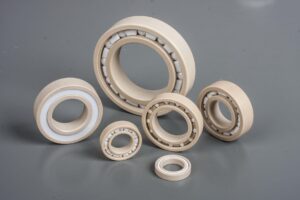
How do innovations and advancements in plastic bearing technology impact their use?
Innovations and advancements in plastic bearing technology have a significant impact on their use across various industries. Here’s a detailed explanation:
- 1. Enhanced Performance:
Advancements in plastic bearing technology have led to improved performance characteristics. Innovations in materials, manufacturing processes, and design techniques have resulted in plastic bearings that offer enhanced load capacity, reduced friction, improved wear resistance, and increased durability. These advancements allow plastic bearings to be used in a broader range of applications and environments where they previously may have been limited.
- 2. Expanded Application Range:
The advancements in plastic bearing technology have expanded their application range. With improved performance and the ability to withstand demanding operating conditions, plastic bearings can now be utilized in industries and applications that were traditionally dominated by metal bearings. They can be found in industries such as automotive, food processing, medical devices, electronics, renewable energy, and many others where their unique properties and benefits are highly valued.
- 3. Cost Savings:
Innovations in plastic bearing technology have brought about cost savings for industries. Plastic bearings often have lower production costs compared to metal bearings, and their lightweight nature can lead to reduced energy consumption in certain applications. Additionally, plastic bearings may eliminate the need for external lubrication, reducing maintenance costs and downtime. These cost-saving advantages make plastic bearings an attractive option for industries seeking efficient and economical solutions.
- 4. Corrosion and Chemical Resistance:
Advancements in plastic bearing technology have addressed the challenges of corrosion and chemical resistance. Newer plastic materials and formulations offer excellent resistance to a wide range of corrosive substances, acids, solvents, and aggressive chemicals. This makes plastic bearings suitable for industries where exposure to harsh environments or aggressive media is common, such as chemical processing, wastewater treatment, or marine applications.
- 5. Noise and Vibration Reduction:
Innovations in plastic bearing technology have led to the development of bearings with improved noise and vibration reduction capabilities. This is particularly beneficial in industries where noise and vibration can negatively impact performance, precision, and user comfort. Plastic bearings with advanced designs and dampening properties help minimize noise and vibration, making them suitable for applications such as electric motors, household appliances, or medical equipment.
- 6. Sustainability and Environmental Considerations:
Advancements in plastic bearing technology have also focused on sustainability and environmental considerations. Newer plastic materials may be recyclable or made from recycled content, reducing the environmental impact. Additionally, plastic bearings often require less lubrication compared to metal bearings, resulting in lower consumption of lubricants and reduced environmental contamination. These sustainable aspects align with the growing demand for eco-friendly solutions in various industries.
In summary, innovations and advancements in plastic bearing technology have a significant impact on their use. These advancements result in enhanced performance, expanded application range, cost savings, improved corrosion and chemical resistance, noise and vibration reduction, and sustainability considerations. As plastic bearing technology continues to evolve, industries can benefit from these advancements by adopting plastic bearings that offer superior performance, reliability, and efficiency in their specific applications.

How do plastic bearings contribute to reduced friction and noise in machinery?
Plastic bearings play a significant role in reducing friction and noise in machinery. Here’s a detailed explanation of how plastic bearings contribute to these benefits:
- 1. Low Friction Coefficient:
Plastic bearings are designed to have low friction coefficients, which means they generate less resistance as the bearing surfaces slide or roll against each other. The low friction coefficient of plastic materials, such as PTFE (polytetrafluoroethylene) or nylon, helps minimize the amount of energy required to rotate or move the bearing. This reduction in friction results in several advantages, including lower power consumption, improved efficiency, and reduced wear on the bearing surfaces.
- 2. Self-Lubricating Properties:
Many plastic bearings have self-lubricating properties, which means they can operate effectively without the need for external lubrication. The plastic materials used in these bearings contain additives or solid lubricants that provide a thin film of lubrication between the bearing surfaces. This self-lubrication minimizes friction and wear, enhances the bearing’s performance, and reduces the need for regular lubrication maintenance. As a result, plastic bearings contribute to smoother operation and lower friction-related noise in machinery.
- 3. Damping Characteristics:
Plastic materials used in bearings often possess inherent damping characteristics. Damping refers to the ability of a material to absorb or dissipate vibrations and energy. Plastic bearings can effectively absorb vibrations generated during machinery operation, which helps reduce the transmission of vibrations to other parts of the system. This damping effect contributes to a quieter operation by minimizing the noise generated by machinery vibrations.
- 4. Reduced Metal-to-Metal Contact:
Plastic bearings create a barrier between metal surfaces, reducing direct metal-to-metal contact. This separation prevents or minimizes the occurrence of metal-to-metal friction, which can lead to increased noise levels. The plastic material acts as a cushioning layer, reducing the impact and noise generated by metal components rubbing against each other. By reducing metal-to-metal contact, plastic bearings contribute to quieter machinery operation.
- 5. Vibration Isolation:
Plastic bearings can help isolate and dampen vibrations within machinery. The elastic and damping properties of plastic materials allow them to absorb and dissipate vibrations, preventing them from propagating throughout the system. By isolating vibrations, plastic bearings help reduce the transmission of vibrations to other parts of the machinery, minimizing noise generation. This vibration isolation contributes to a quieter overall operation.
Overall, plastic bearings offer several advantages that contribute to reduced friction and noise in machinery. Their low friction coefficients, self-lubricating properties, damping characteristics, reduced metal-to-metal contact, and vibration isolation capabilities all work together to minimize energy losses, wear, and noise generation. However, it’s important to consider specific application requirements and consult manufacturers’ guidelines to ensure the appropriate selection and use of plastic bearings for optimal performance in machinery.


editor by CX 2024-02-16
China Hot sale taper roller bearing 30202 30203 30204 30205 30206 30207 JR ball bearing
Sort: Roller
Structure: Taper
Relevant Industries: Resorts, Garment Outlets, Building Material Outlets, Producing Plant, Equipment Repair Outlets, Food & Beverage Factory, Farms, Cafe, House Use, Retail, Meals Shop, 35711 CZPT taper roller bearing 35711JR 35711-A 35711 35711A Printing Shops, Building works , Energy & Mining, Food & Beverage Outlets, Promoting Firm, taper roller bearing 35714
Product Amount: 35714
Precision Ranking: P0, P5, P6, P4
Seals Variety: Open
Quantity of Row: Single row
Product: taper roller bearing 35714
cage: nylon, metal, brass
Clearance: C1, JGB37-3157 large torque 9-1270rpm bldc geared motor driver lower noise dc motor brush 12V 24V workplace Equipment, Mahjong Machine C2,C3
Sound: Z1V1 Z2V2 Z3V3
Materials: metal bearings, carbon bearings, stainless bearings
Service: OEM is appropriate
MOQ: as per the necessity of buyers
certificates: ISO9001,
samples/stock: obtainable
Packing particulars: in accordance to client’s specifications
Packaging Details: Hot sale taper roller bearing 35712 35713 35714 35715 35716 35717 JR1: barreled deal+outer carton+pallets 2: solitary box+outer carton+pallets 3: tube deal+center box+outer carton+pallets 4: In accordance to your prerequisite
Port: any port in China
Welcome HangZhou BAQI
Very hot sale taper roller bearing 35712 35713 35714 35715 35716 35717 JR
| New code | 35714 |
|---|---|
| Bearing variety | taper roller bearing |
| Model | koyo, CZPT , oem or BQB |
| Company kind | Manufacturer |
| Id (mm) | 20 |
| OD (mm) | forty seven |
| B (mm) | fourteen |
| Cr(KN) | 28.two |
| Cor(KN) | 30.five |
| Speed for grease lubrication (r/min) | 8000 |
| Oil lubrication speed (r/min) | ten thousand |
| Excess weight(kg) | .126 |
| Substance | Chrome steel or Stainless steel |
| Shipping and delivery time | two-3 times of inventory, fifteen-thirty times for OEM |
| Packing | industrial packing or business packing |
| Payment phrases | T/T, Western Union, Paypal |
| Gurantee | 1 years |
Packaging & Shipping
Associated Goods
About UsHangZhou BAQI BEARING CO., manufacturing unit straight provide bearing 32211 taper roller bearing abundant inventory LTD
Our Benefit Message is “Quality Is Our Lifestyle”
HangZhou Baqi bearing Co., Ltd is a manufacturer of bearings, far more than 15 several years experience, and with three hundred skilled employees, 90% of our production gear is imported from Japan and Germany to offer you our clients the very best competitive edge Goods.
Our model ” BQB”, we are 1 of the initial mover of bearing organization in China. our main competencies is “ball bearing and roller bearing” customized high precision cnc machine driving pto atv lathe planer gear shaft
Clients Suggestions
FAQ
Choosing the Right Ball Bearing for Your Application
When choosing a Ball Bearing, there are several things to consider. These factors include: the size, lubricant type, presence of corrosive agents, stray electrical currents, and more. It can be challenging to choose the right type, size, and type of ball bearing for your application. You should also carefully calculate the loads to determine the right size. Here are some tips for choosing the right Ball Bearing for your application.
Single-row
The single-row ball bearing is one of the most popular types of bearings. The inner and outer ring are designed with raceway grooves that are shaped slightly larger than the balls. This type of bearing has a low torque and can handle high-speed applications with minimal power loss. The radial dimensions of single-row ball bearings also vary, so it is possible to find one that fits your specific application. Besides the above-mentioned advantages, single-row ball bearings are also available with varying grease levels and are widely applicable to applications where the space is limited.
Single-row ball bearings are also called angular-contact ball bearings. Because of their single-row design, they are not separable and can accommodate a high-speed, heavy-duty application. Single-row angular-contact ball bearings can only handle axial load in one direction, and they must be installed in pairs for pure radial loads. Single-row ball bearings are a popular type of rolling bearings and can be used for a wide range of applications.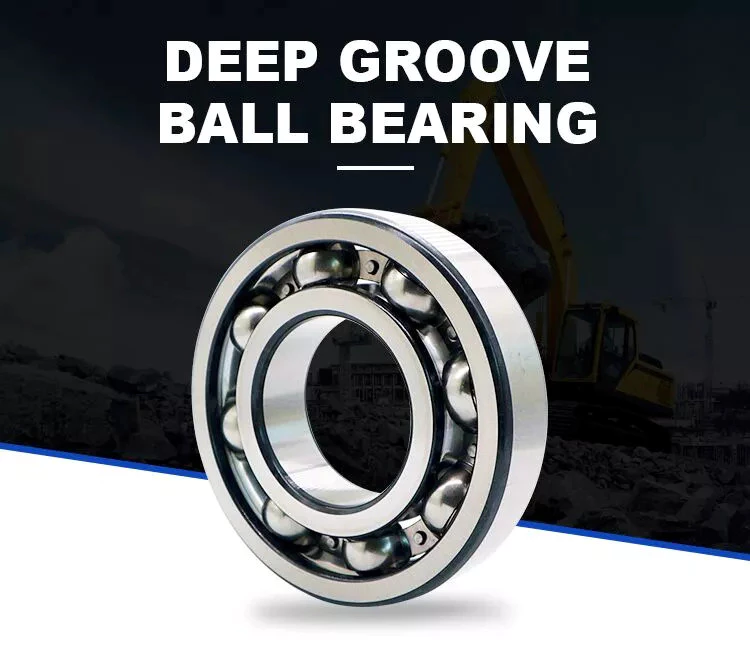
Self-aligning
The self-aligning ball bearing was invented by Sven Wingquist, a plant engineer for a textile company in Sweden. While he was responsible for making production as efficient as possible, he soon realized that the machinery he had in place wasn’t working as efficiently as it could. Although ball bearings are great for reducing friction, they were not flexible enough to compensate for misalignments in the machine.
Self-aligning ball bearings have two rows of balls and a common sphered raceway. The inner ring is curved and combines the two rows of balls into one cage. These bearings can tolerate shaft misalignment and compensate for static angular defects. They can be used in simple woodworking machinery, ventilators, and conveying equipment. They are often the preferred choice for applications where shaft alignment is an issue.
Ceramic
A Ceramic ball bearing is a type of high-performance bearing that is available in both full-ceramic and hybrid forms. The main differences between ceramic and steel ball bearings are their construction, lubrication, and mobility. High-quality ceramic ball bearings are durable, and they are ideal for corrosive and high-temperature applications. The material used to create these bearings helps prevent electrolytic corrosion. They are also ideal for reducing the friction and lubrication requirements.
Ceramic balls are harder and less brittle than steel balls, which gives them a higher degree of rigidity. Ceramics also have a higher hardness, with a hardness of Rc75-80 compared to Rc58-64 for steel balls. Their high compressive strength is approximately 5 to 7 times greater than steel. In addition, they have a very low coefficient of friction, which allows them to spin at higher speeds and with less friction. This increases their lifespan and durability, and decreases the energy needed to turn cranks.
Steel
Unlike traditional bearings, steel balls have a relatively uniform hardness. Carbon steel, for instance, is 2.1% carbon by weight. According to the American Iron and Steel Institute, copper content must be no more than 0.40% and manganese content should not be more than 1.65 g/cm3. After carbonizing, steel balls undergo a process called sizing, which improves their roundness geometry and hardness.
The main differences between steel ball bearings and ceramic ball bearings can be traced to their different materials. Ceramic balls are made from zirconium dioxide or silicon nitride. Silicon nitride is harder than steel and resists shocks. The result is increased speed and longer service life. Polyoxymethylene acetal (PMMA) bearing balls are known for their stiffness, strength, and tolerance, but are not as common as steel ball bearings.
Plastic
The most popular types of plastic ball bearings are made of polypropylene or PTFE. These bearings are used in applications requiring higher chemical resistance. Polypropylene is a structural polymer that offers excellent physical and chemical properties, including excellent resistance to organic solvents and degreasing agents. Its lightweight, low moisture absorption rate, and good heat resistance make it an excellent choice for high-temperature applications. However, plastic bearings are not without their drawbacks, especially when operating at very high temperatures or under heavy loads.
Compared to metal bearings, plastic ball-bearings do not require lubrication. They also are highly corrosion-resistant, making them an excellent choice for wash-down applications. They are also post-, autoclave-, and gamma sterilizable. Many conventional steel ball-bearings cannot handle the high temperatures of food processing or swimming pools. In addition to high temperature applications, plastic ball bearings are resistant to chemicals, including chlorine.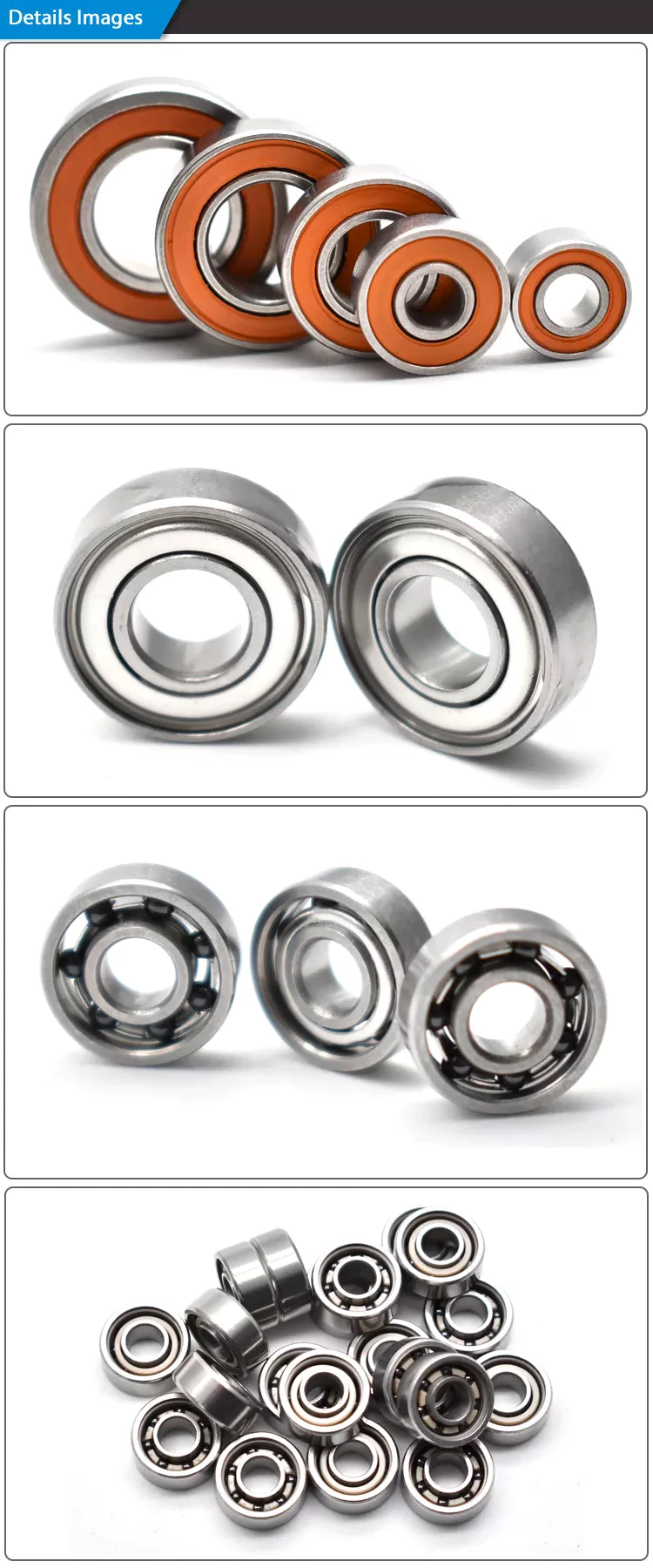
Glass
Plastic sliding bearings are molded bearings made of engineering plastic. With self-lubricating modification technology, these bearings can be produced by injection molding of plastic beads. They are widely used in various industries such as office equipment, fitness and automotive equipment. In addition to plastic bearings, glass balls are used in a variety of other applications, including medical equipment. Glass ball bearings have excellent corrosion resistance, excellent mechanical properties, and are electrically insulators.
Plastic ball bearings are made of all-plastic races and cages. These bearings are suitable for applications that are exposed to acids and alkalis. Because they are cheaper than glass balls, plastic ball bearings are popular in chemical-exposed environments. Stainless steel balls are also resistant to heat and corrosion. But the main disadvantage of plastic ball bearings is that they are not as strong as glass balls. So, if weight and noise is your main concern, consider using plastic balls instead.
Miniature
The global miniature ball bearing market is expected to reach US$ 2.39 Billion by 2027, at a CAGR of 7.2%. Growth in the region is attributed to technological advancement and government initiatives. Countries such as India and China are attracting FDIs and emphasizing the establishment of a global manufacturing hub. This is boosting the market for miniature ball bearings. The miniscule ball bearings are manufactured in small quantities and are very small.
Some manufacturers produce miniature ball bearings in different materials and designs. Chrome steel is the most popular material for miniature ball bearings because of its high load capacity, low noise properties, and lower cost. But the cost of stainless steel miniature bearings is low, since the amount of steel used is minimal. Stainless steel miniature bearings are the smallest in size. Therefore, you can choose stainless steel mini ball bearings for high-speed applications.
Angular-contact
Angular-contact ball bearings have three components: a cage, inner ring, and balls. Angular-contact ball bearings can support high axial and radial loads. Various design and manufacturing attributes make angular-contact ball bearings suitable for a variety of applications. Some features of this bearing type include a special lubricant, different cage materials, and different coatings.
The size of an angular-contact ball bearing is determined by the design units: outer ring width, axial load, and radial load. Depending on the type of application, an angular-contact ball bearing may be manufactured in double-row, triple-row, or quadruple-row configurations. Angular contact ball bearings can be classified according to their design units, which range from metric to imperial. A higher ABEC number means tighter tolerances. To determine the tolerance equivalent of a particular bearing, consult a standard Angular-contact ball bearing table.
Angular-contact ball bearings feature high and low-shoulder configurations. They have two-dimensional races that accommodate axial and radial loads. They are available in self-retaining units with solid inner and outer rings, and ball and cage assemblies. Cages made of cast and wrought brass are the most popular, but lightweight phenolic cages are also available. The latter is a better choice because it doesn’t absorb oil and has lower rolling friction.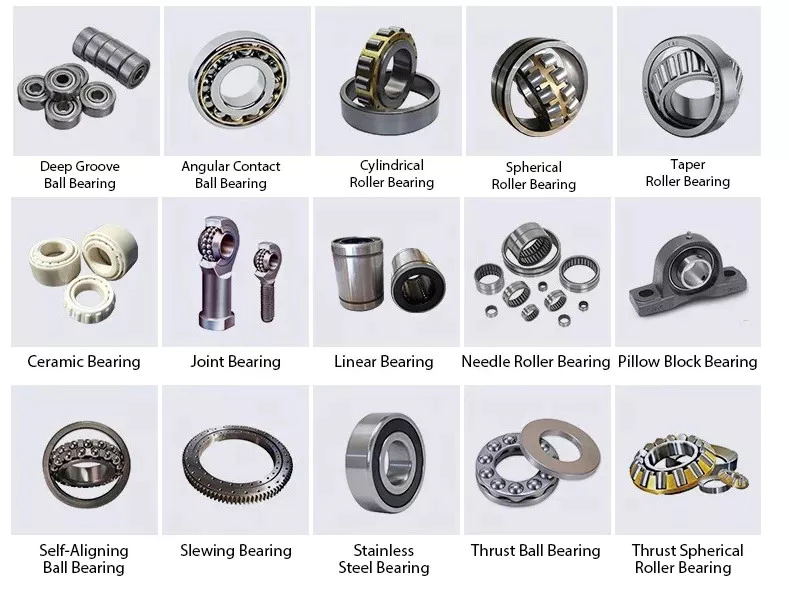
Materials
When it comes to the construction of a ball bearing, high-quality raw materials are a crucial component. These materials not only affect the overall quality of a ball bearing, but also influence the cost. That’s why you should pay close attention to raw material quality. In addition to that, raw materials should be tested several times before the manufacturing process to ensure quality. Read on for some information about the different types of materials used to make ball bearings.
Steel is the most common material for ball bearings. Most ball bearings contain stainless steel balls, which are remarkably corrosion-resistant. They are also resistant to saltwater and alkalis. However, stainless steel balls are heavier than plastic ones, and they are also magnetic, which may be a drawback in some applications. If you’re looking for a metal-free option, glass balls are the way to go. They’re sturdy, lightweight, and resistant to a wide range of chemicals.

editor by czh 2023-02-19
